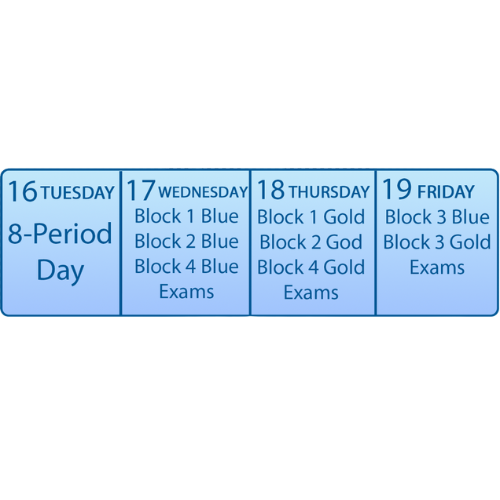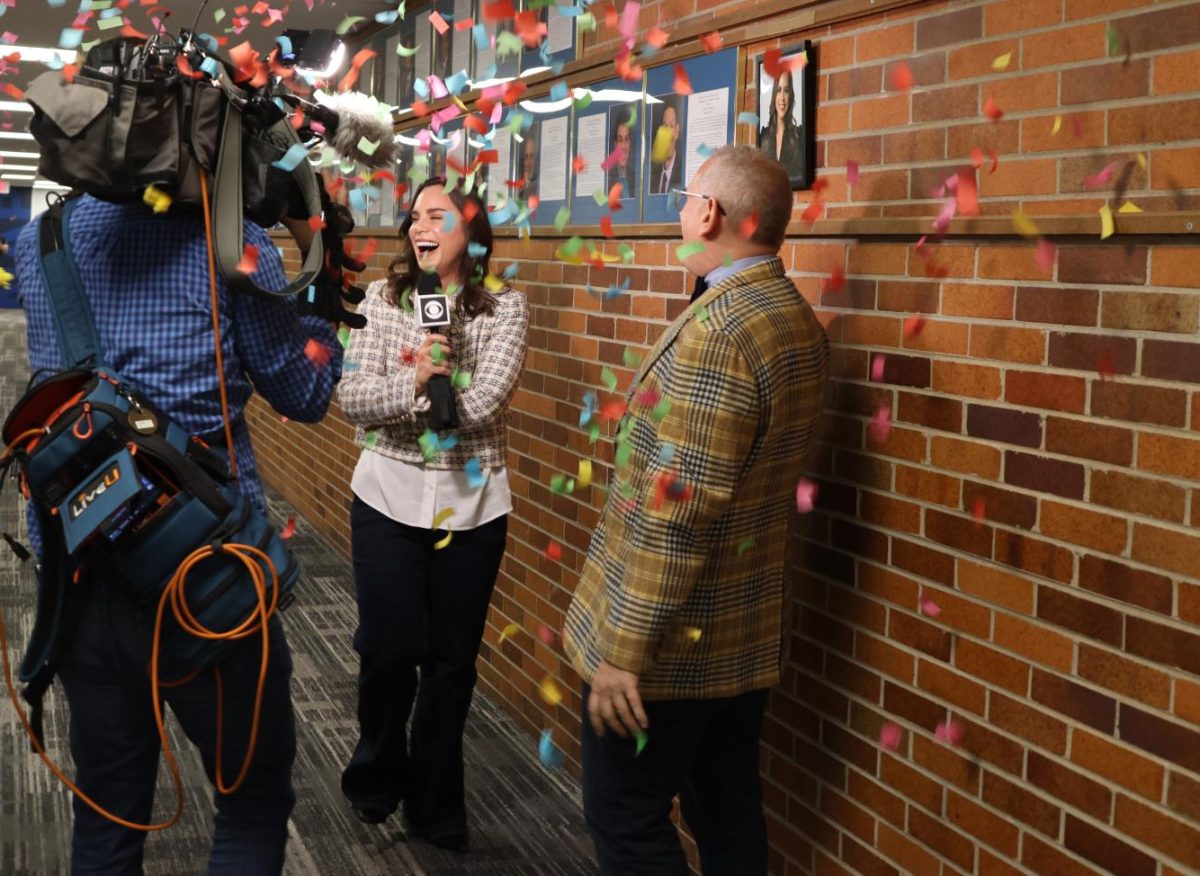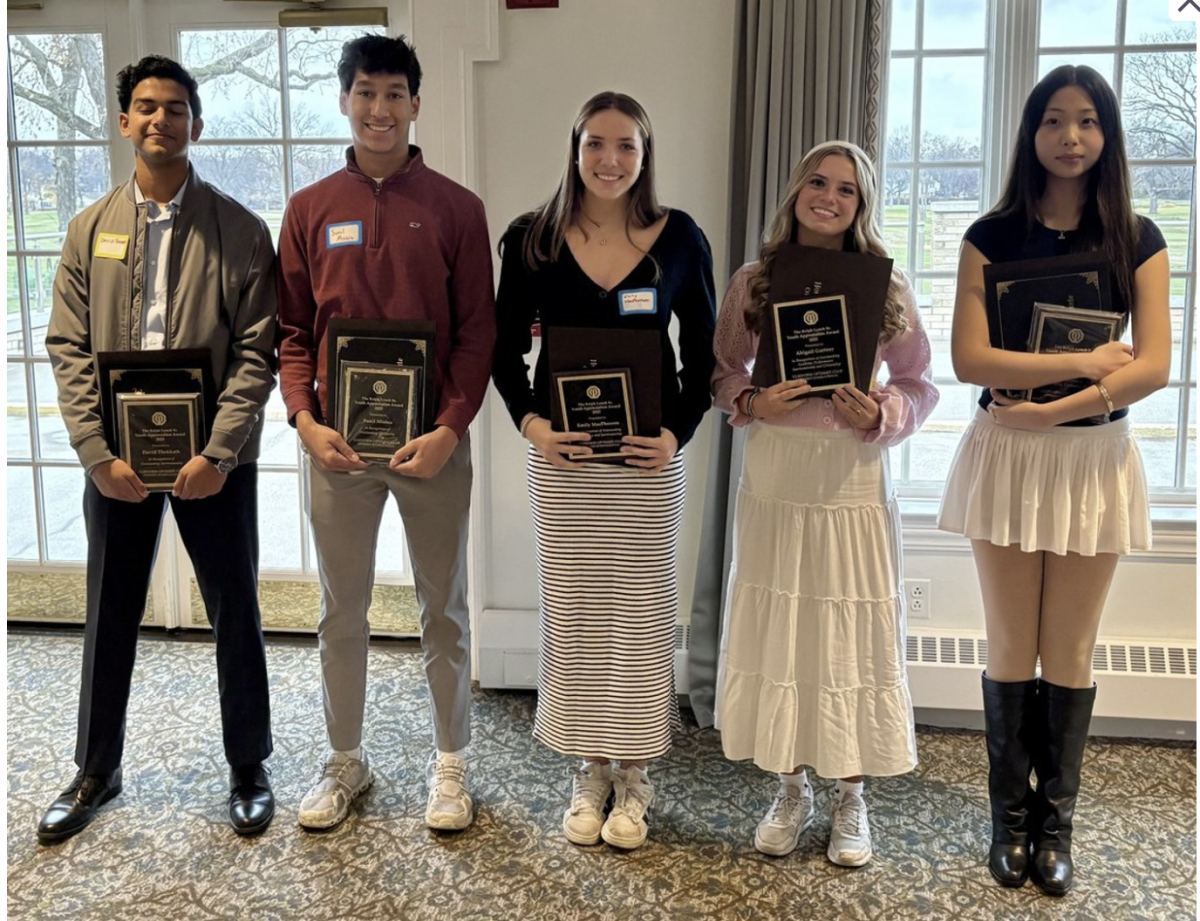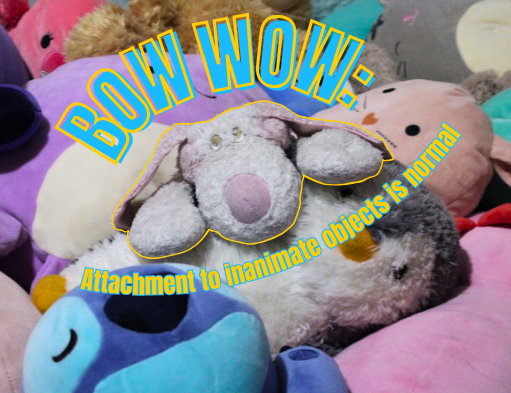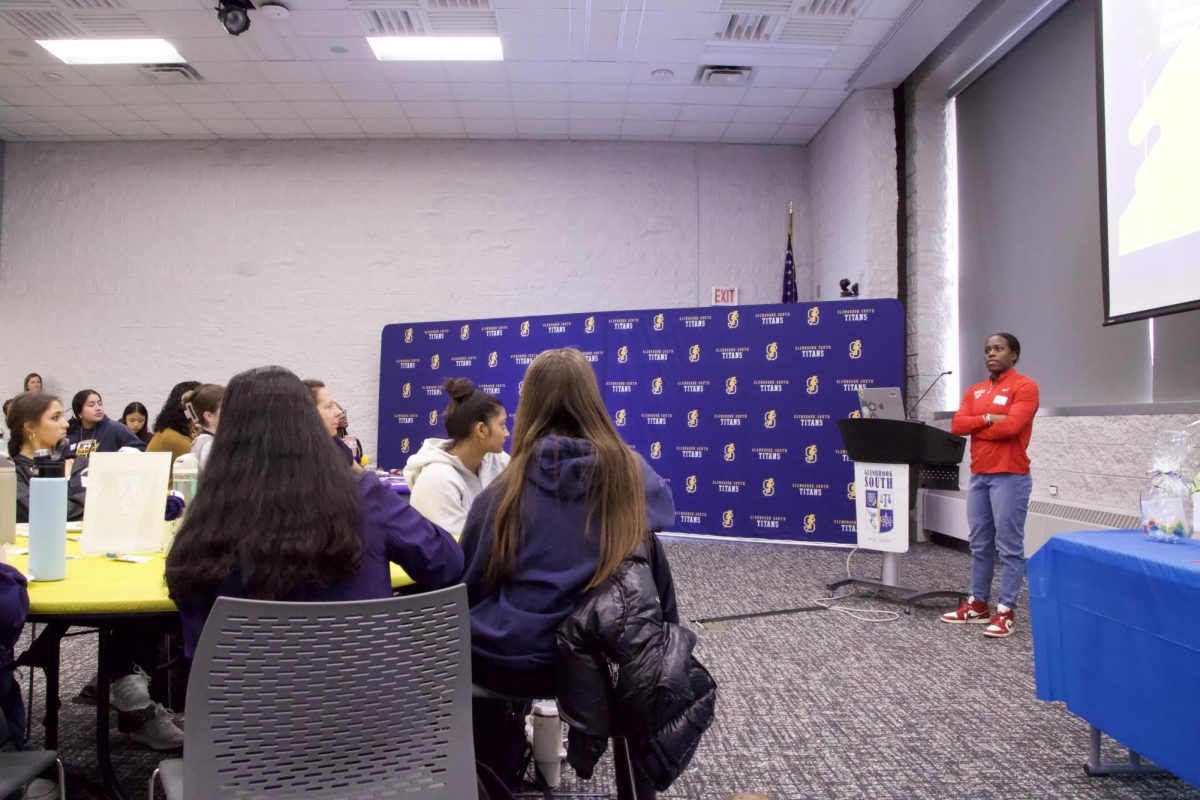Jeff Yordy, horticulture teacher and coach, passed away on March 29 from complications following open heart surgery.
The surgery, successfully executed 11 days prior to his death, implanted a ventricular assist device into his heart, but ultimately led to fatal bleeding in his brain.
Yordy taught at South for 30 years, in which he led the horticulture team to 22 state championships, won the Distinguished Teacher of the Year Award in 2010 and developed hundreds, if not thousands, of meaningful relationships, according to Principal Dr. Brian Wegley.
Wegley, who coached football and taught in the Science Department with Yordy, said that the reaction of South students and staff in the wake of Yordy’s passing is indicative of the impact he had on the school. One day after his death, horticulture students and a few staff members met in the empty school to arrange 4,200 green ribbon pins that were worn by many for over a week in honor of Yordy.
“I am just so overwhelmed with how much love [Jeff] must have given because of how much love I am receiving,” Patty Yordy, Jeff’s wife, said. “He paid attention to the people in front of him and not the unimportant things.”
According to Despina Mandarino, close friend and colleague of Jeff’s in the Science Department, Jeff was the “ultimate plant guy.” Out of the approximately 200 plants on the horticulture course list, Jeff knew every type, latin name, location, as well as unique facts about the plant, Mandarino said.
“It wasn’t just a class for him; he lived it,” Mandarino said. “His whole life revolved around it- from the foods that he ate, to the plants he grew in his garden, to the things he taught his kids.”
It was in Jeff’s first year at Goshen College in Indiana where his interest in horticulture as a career was born, Patty said. There, he befriended two older women who owned a greenhouse, visiting them frequently to discuss gardening and collect plant cuttings. He returned home with 150 plants in tow.
After Jeff and Patty’s first year in separate colleges as high school sweethearts, they reunited at the University of Illinois at Champaign-Urbana where Jeff could dig deeper into his horticulture concentration. Jeff got his bachelor’s degree in ornamental horticulture at U of I, then after his first teaching job at Lake County Vocational Center he was hired to be a biology and horticulture teacher at South in 1984.
“Jeff was such an incredibly great teacher”
What started as a small horticulture program at South grew into a source of pride for the school with Jeff in charge, which is not only signified by 22 State Championship banners hung in the New Pit, but also the living projects Jeff spearheaded in the school, Jeff Rylander, instructional supervisor of the Science Department, said.
There’s the greenhouse that Jeff doubled in size and advanced in technology, and just outside its windows there’s the garden facing Lake St. which provides fresh vegetables to the Northfield Food Pantry. Jeff also oversaw the redesign of the school’s courtyard, a project that gave his Advanced Horticulture students a chance to apply their work and grace the grounds for years to come.
“In science, if you have a teacher who’s really passionate about an elective of some sort, they usually take it and run with it, and if they can get a lot of students to sign up for it, then it blossoms,” Chris Hilvert, science teacher, said. “Jeff was such an incredibly great teacher, especially with kids who are kind of finding their way. He would just have this open-door policy with kids that really didn’t know where they fit.”
Mandarino said that when she taught horticulture with Jeff, he would often pick students who seemed to be struggling emotionally or academically to be their lab aid. But as Jeff’s plan intended, the trio did more talking than lab-aiding.
“Sometimes it would be me and [Jeff] teasing on each other and ripping on each other and being able to laugh at ourselves, and once the kid saw that it was okay to laugh at yourself and just not take life so seriously, a lot of times things relaxed and they could find their place in the world,” Mandarino said.
“They turned into little Mr. Yordys”
To senior Lauren Kessler, a member of the horticulture team, although Jeff was her coach and teacher, he seemed to her more like a friend. Despite his constant sense of humor and tendency to tease his students in the brightest, most loving way possible, Kessler said he was fiercely dedicated to the horticulture team’s victory.
That commitment to strategy, Kessler said, is ultimately what led to the team’s unbridled success through the years.
In the weeks before the state competition in April, Jeff would take the team to nurseries in the area to drill them on plant identification, the most important part of horticulture competitions. Jeff would line the students up in front of a plant, reading each of their lips as they silently mouthed their guess at the plant’s name so that everyone would get to try to identify the species.
“I don’t know how he did this, but I know he gave students chances to prove how good they could be, and they always rose to his expectations,” Patty said. “I would see him study with these students and they turned into little Mr. Yordys. They were just as inquisitive and just as observant and just as passionate about plants.”
“He was always pushing the envelope…”
Patty said that Jeff as a teacher was very similar to Jeff as a father in the sense that he could be a disciplinarian when it came to serious matters like preventing their three sons from playing violent video games, but most of the time he was a fun-loving, adventure-driven goofball. Jeff was involved with his family life to the utmost degree, Patty said; he taught his three sons about fishing, plants, disc golf, football, faith and being funny.
“He found a way to make sure that you were finding joy in your life,” Wegley sid.
One way that Jeff spread this joy to the people that surrounded him was through frequent and masterfully designed pranks, Wegley said. Before he knew Jeff’s knack for foolery, Jeff convinced Wegley, who was then a new physics teacher, that his monthly earnings amounted to 37 cents after deductions by planting a fake check.
After Jeff’s death, Wegley discovered two folders filed away in his office desk, one titled “fun,” the other titled “agony”; South will surely be uncovering Jeff’s pranks for years to come, Wegley said.
“Within 10 minutes […] we had bonded”
Soon after Jeff came to South, his closest colleagues and often co-conspirators became Hilvert and Mark Ferguson, director of the TV department. The relationship started when the trio drove to La Crosse, Wis. and then to the Grand Canyon to film educational videos for biology classes with Jeff and Hilvert as the teachers and Ferguson as the editor.
“Within 10 minutes after we left the school parking lot, we had bonded,” Ferguson said. “The three of us could really talk deeply and quickly without the barriers, and that’s the beauty of our relationship. We would go out just because the conversation was so free; you could say anything and no one judged, no one cared, people offered support.”
Along with James Shellard, student activities director, the trio began running the Chicago triathlon together after Jeff had first discovered it in the newspaper, Hilvert said. And when Jeff heard about the River to River run, in which ten teammates take turns running 5Ks from the Mississippi to the Ohio River, the four teachers, along with Wegley, embarked with him on the challenge.
“He was always pushing the envelope in terms of life experiences,” Hilvert said. “I would say that in his 55 years, he packed more into those 55 years than most people do in their 80 or 90 years.”
Jeff’s heart condition gradually worsened after his first heart attack in 2000; he was forced to start giving up the activities that were too physically exhausting, Patty said. Gradually, he gave up running triathlons, then 5Ks, then biking. But instead of treating his weak heart like a disability, Jeff discovered new activities to cure his insatiable curiosity: playing with the stock market, taking walks and learning how to make pottery in Kurt Webb’s ceramics classroom.
“His passion was figuring out people and pushing them”
Four years ago, when Jeff first started spending one period a day as a ceramics student, Webb was unsure; this man was a larger-than-life character who could be distracting to the kids, and after all, most teachers who say they want to learn how to throw pottery don’t really understand the time it takes to learn. Soon, Jeff proved him wrong.
“My reluctance at first really evaporated because I noticed that he wasn’t here for a quick fix with clay,” Webb said. “It wasn’t going to be a cute little romance. He was really going to become entrenched in it, and he did want to develop.”
In the classroom, Webb treated Jeff like any other student- he took quizzes, wrote papers, was reminded to clean up his messes- yet quickly Webb and Jeff’s relationship blossomed into a treasured friendship for both of them.
In the morning, Webb would come to school to find Jeff waiting for him at the ceramics room, eager to see the work they had fired in the kiln the previous day. During class, students would watch as they excitedly discussed what they had read about ceramics the previous night. And during their free periods, they would glaze their pottery while drinking tea in silence.
“I really believe that he was a remarkable friend in that short period,” Webb said. “We go through our life and we’re lucky to have one or two friends, and of course we all have acquaintances, but people who we’d really do anything for and people who we think about often. […] A kind of relationship where you don’t always have to talk to each other.”
In ceramics, Jeff became fixated on a type of Japanese pottery aesthetic called hagi, which focuses on celebrating imperfections like cracks or fingerprints in pieces of work, Webb said. Before putting a bowl in the kiln, Jeff would grasp the edges of the base and impress his fingers in it, imagining his children or grandchildren placing their hand in the exact same position decades later.
There is a Japanese quote that Jeff particularly appreciated: “Ichi-go ichi-e” meaning “one time, one place.” In the context of hagi pottery, it refers to the effect that one bowl has on another when they’re placed next to one another in the kiln. Because of the closeness of the bowls, one might come out with a blush of color on its side, and it wouldn’t look like that unless it was placed next to the other in that one time and one place.
“You learn to really treasure the fact that things are affected by one another,” Webb said. “With all of the thousands of relationships that he had, that is a ‘one time, one place’ experience for those students or the teacher or his friends or me. You can never replicate that experience, it’s really a very unique thing: that he was here, that he was sitting with a certain group of students, that he was using a certain glaze.”
The personal connection with Webb and the ceramics students is the reason why Jeff became so immersed in the art, Wegley said. Everything Jeff did– whether it be ceramics, horticulture team, teaching, football, disc golf– was about the relationships he built, the people he surrounded himself with.
“His passion was figuring out people and pushing them, just helping them figure out what they needed at that point their life,” Wegley said. “He also had this incredible gift to get to know someone and see right through the nature of who they were to the core.”





